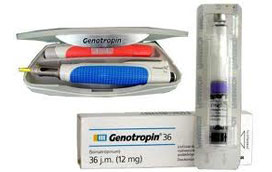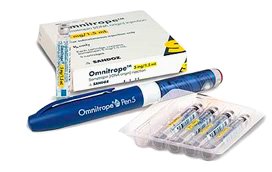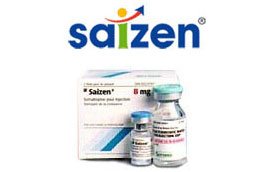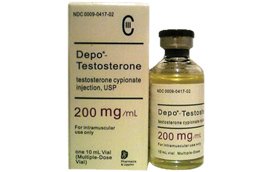Is Too Much Testosterone Bad for You?

Adults today live longer than at any time in our current history, and for that reason alone, maintaining proper hormone levels is crucial. We know that low testosterone can have potentially dangerous ramifications for the body, but is too much testosterone bad for you, as well?
Testosterone replacement therapy has one goal – boosting the level of testosterone in the body back up to its ideal state. The purpose of supplemental testosterone is not to increase what is already fine – that is when unwanted side effects can, and often do, occur.
Is too much testosterone good or bad? The answer is subjective, as one person can feel okay with low testosterone levels and feel great when testosterone therapy increases this hormone in the body. Another person can feel terrible with higher testosterone yet better when the levels decline a bit.
Part of the reason the answer is so difficult to give is that the average range for testosterone in the body is pretty broad, and not all labs even agree on those numbers. That is why doctors who prescribe testosterone replacement therapy utilize blood test results and symptoms to determine candidacy for treatment.
Here at our Kingsberg HRT Clinic hormone clinic, we get many questions about TRT, such as can too much testosterone give you headaches or cause mood changes. While the answer to both questions is yes, once again we are speaking subjectively. Just because one person with higher than normal levels of testosterone gets headaches does not mean others will. Each man or woman experiences hormone deficiency in a unique way, and will also respond to higher levels of hormones in an equally unique manner.
When your bloodstream carries too much testosterone, anxiety, jittery feelings, and increased stress are all possible. Feelings of stress and anxiety are also signs of low testosterone which is why blood analysis is vital.
If you have too little or too much testosterone, depression is another issue you may notice. Mood swings and social isolation often accompany unbalanced hormone levels.
Effects of Too Much Testosterone in Women
Females have much lower natural levels of testosterone. In cases of too much testosterone in women, polycystic ovarian syndrome (PCOS) is often the first warning sign. Doctors have not yet determined if PCOS causes high testosterone levels or if it is the other way around. The doctor will diagnose PCOS by checking your ovaries for cysts.
When women say I have too much testosterone, female hormone blood tests that measure progesterone, testosterone, growth hormone, and estrogen are essential to run. No form of hormone replacement therapy should ever commence without proper blood panels.
Is too much testosterone dangerous for a woman?
Just as low testosterone can cause problems, so can too much of this hormone in the bloodstream. Through a natural conversion process, too much testosterone turns into estrogen in the body. If progesterone and testosterone levels start to get lower and estrogen levels rise, the body goes into a condition called estrogen dominance that can offset other hormones and lead to weight gain.
Other signs of too much testosterone in women include:
- Oily skin and acne breakouts – especially around the chin and lower jawline
- Changes or irregularity of menstrual cycles
- Changes in blood sugar
- Changes in libido
One more side effect of too much testosterone – hair loss! Women may exhibit male frontal balding as a result of unbalanced hormone levels.
Effects of Too Much Testosterone for Men
People typically think of too much testosterone in males as being a problem of bodybuilders. Short tempers, bulging muscles, and erratic behavior are often thought of as signs of increased hormone levels. In addition to increased estrogen conversion that we mentioned previously, too much testosterone can also lead to an excessive conversion into dihydrotestosterone (DHT).
Some of the recognizable signs of too much testosterone include:
- Risky behaviors
- Balding
- Enlarged breasts
- Oily skin
- Acne
- Deepening of the voice
- Poor judgement
- Increased blood cell count
With too much testosterone, erectile dysfunction is a possibility. Just as with low testosterone, the wrong signal from hormones in the bloodstream could impact sexual performance.
We often see testicular shrinkage occur with too much testosterone, and sperm count also declines because the hypothalamus senses too high a level of testosterone in the bloodstream. It responds by decreasing the release of important hormones that would normally stimulate the pituitary gland to secrete follicle stimulating hormone (FSH) and luteinizing hormone (LH) that tell the testes to produce sperm and testosterone.
When a male has too much testosterone, anger, increased anxiety, and mood changes are likely. It becomes difficult to handle stressful situations.
The other aspect of too much testosterone, aggression, can lead to fights, irresponsible behavior, and problems in the workplace and at home.
How to Reduce Side Effects from Too Much Testosterone
Because too much free testosterone could be a result of another medical issue or overuse or abuse of supplemental testosterone, the ways to reduce the risk of side effects will differ.
If you are a woman diagnosed with PCOS, you will need to discuss with your doctor how to reduce the too much testosterone effects. Women who are overweight will benefit from weight loss, as that can impact hormone production. Certain medications, exercise, and proper nutrition may also help.
Is too much testosterone harmful for men?
Yes, just as Low T brings specific issues, so does an excess of testosterone. You may be at a higher risk of blood clots, stroke, and heart attack if you do not get your testosterone levels back in the normal range.
Since the most significant cause of side effects is using too much testosterone treatment, lowering your dosage will likely bring the best impact.
Always speak with a hormone specialist before using, increasing, or decreasing testosterone therapy.
The hormone specialists here at Kingsberg HRT Clinic can help bring balance back to your body and life. Contact us today for a free consultation.




















